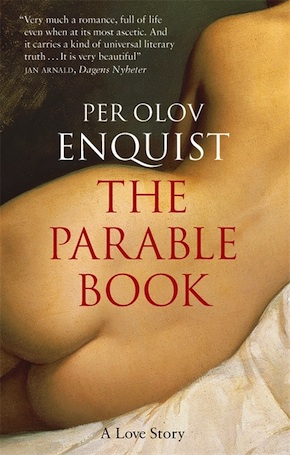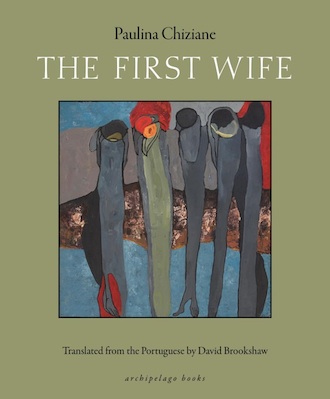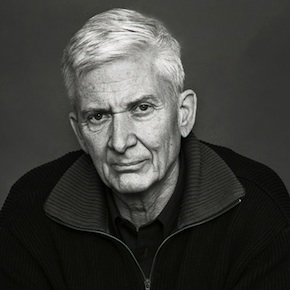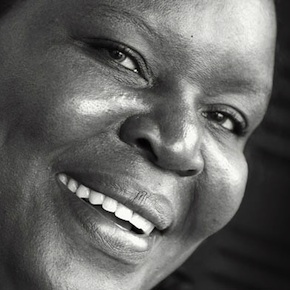Love all
by Mika Provata-Carlone
“A down-to-earth, fairytale-like love… some of Enquist’s finest work.” Svenska Dagbladet
What is literature if not a way to frame our vision of the world? What is language if not a prism through which to think, explore, relate, question, resolve, civilise – or merely (and vitally) voice despair? And what is love if not the ultimate Socratic demon, fusing together human lives, welding experiences, yielding truths, a force to overcome untruths? We think through our bodies and live through our minds, we meet others, the Other, through both, we are excluded from ourselves and the world when that balance is askew or outright falling apart.
Per Olov Enquist in The Parable Book: A Love Story and Paulina Chiziane in The First Wife: A Tale of Polygamy seek to examine that balance of body and mind, of love, on the level of the self, of relationships, society, history, writing. And it is staggering to put together their two stories, their Nordic and sub-equatorial perspectives, their male and female sensibilities. In both, religion has ploughed through souls, traditions and natural needs and desires; tradition has encrusted itself on hope and the individual, so that a voice is rather an echo of the cries of longing, pain and memory of many who have vanished in the shadows of time – if they ever existed at all. In both, the body, the sensual, lustful or mechanical experience of the flesh, becomes a catalyst, a dictionary of translation and interpretation. There is unmitigated carnality, sex and its opposite, death, in both. Thought also is private, almost uncommunicable, just as a deeper connection between the I and the Thou is unutterable – perhaps unattainable.
For Enquist, life is a manuscript, a palimpsest, written, torn, annotated, reread – but never successfully or radically revised; the main character, Perola, an elusive, deceptive self-reflection of Enquist himself, seeks redemption, resurrection and the afterlife through an initiatory examination of death and desire, of “the art of dying once one has lived”. This is a crossroads of lives lived well or only partially, an episodic novel of chapters that are proclaimed as parables, and secured on the cosmos of the imagination by a series of elaborate, never exhaustively developed allusions and symbolic associations: Jean Sibelius, Søren Kierkegaard, Rudyard Kipling, less explicitly Enquist’s own predecessors and literary ancestors such as August Strindberg, Arthur Schopenhauer, Hjalmar Söderberg, Selma Lagerlöf, Isaak Dinesen.
The Parable Book is a labyrinthine yet determinate exposition of all the ways we create to besmirch what would be wondrous, that time-bound journey from womb to tomb.”
This is a humorously dark, delicately fragile narrative from the waterfront of time, from the riverbanks of Charon, provokingly introspective and feistily public at the same time. It is an unyielding evocation of “do not go gentle into that good night”, a kind of endless, raging narrative of an ending but still unfinished life.
The Parable Book is a labyrinthine yet determinate exposition of all the ways we create to besmirch what would be wondrous, that time-bound journey from womb to tomb that nonetheless contains both beauty and eternity. Thoughts, words, memory, narrative threads become entangled and convoluted, not because talent is lacking or clarity of purpose is failing, but because old age can be a very dark wood, where Beatrices are scarce and the time to seek them is running out. This is a stinging, obtrusive book, in turns acerbic, brutal, or agonisingly gentle, yet graceful, poetic, confident and suave. It is Philip Roth without the sarcasm and loathing, an arena where there are supreme clashes between pietism and loneliness, where physical yearning can be anything, from desire to lust, to self-negating submission – to a sense of non-existence both personal and historical. Even, perhaps, authorial.
Visions and chimeras intertwine, this is life before and without Babette, or even without a glimpse of Babette at all. There is the clash of the past with itself, a sharp collision between past and present. The 77-year-old Perola is shown a photograph of his own father on his son’s phone. An app makes this image ‘come to life’ – Perola is horrified and entranced, shocked and released, as though the avatar had tamed all phantoms and ghosts – had replaced memory and life.
Enquist does not look too dissimilar to Beckett, and in fact he has the same magnetism, mystery and intangible attractiveness as the man who created characters who speak before the words are spoken or beyond what semantics allow. He also has the same enigmatic sense of something unavoidably ominous, an existential Odyssey without an Ithaca. Writers in Enquist’s paradigm come from unwriterly backgrounds, and writing itself, not merely storytelling but the conscious act of sophisticated verbalisation of experience, is a natural gesture – or an inevitable levy that must be paid to secure individual existence. There are hauntingly beautiful echoes of Lagerlöf’s stark, biblical stories of guilt and innocence, a Rousseau-like adherence to an ur-state of attachment to life: we are betrayed or exalted Emiles, all of us, Enquist seems to be saying.
As for writing, it is a phenomenon of multiplication that defies the individual, an act of fertility where bareness is feared. Writers fuse and melt into one another. Perhaps it is also a state of “contamination”, as Perola worries, a real and figurative Nordic angst. Writing is above all erotic, and in this case an explicitly male act. The Parable Book forces us to look closely at our relationship with the intimate, with male and female perspectives, experiences, stereotypes. We have rendered the erotic so vernacular, Perola/Enquist seems to say, that it loses its power to enchant us, thrill us, transport us, even when it stares us in the face. In our efforts to de-demonise the physical, we risk reducing it into a brutish simulacrum. The scene between Perola and the Woman who transforms him even if their meeting is almost a drop in the river of this man’s life, walks a very fine line between the two, redeemed by the complexity of the novel’s intertextuality, its layers of deferred meaning, virtual alter egos, its parables and quest for a less cerebral osmosis with existence.
It is difficult to say whether the experience of the reader matches the declared hypnotism of the writer. But there is the almost belligerent clarity characteristic of so many when they have reached old age, the kind of intimate, irreversible distillation of the true meaning of life to a strict few bare facts. On the threshold of transcendence, the mechanics of life, pragmatic joy, loom, perhaps, as a more heavenly reward. The Parable Book is a moving, even if disquieting book. It is about the body experiencing what the mind fumbles to render coherent, it is about the mind analysed as it seeks transcendence through the body. It is about the human individual seeking unity in loneliness, and in the end, Tove Jansson’s Autumn Song replaces Dylan Thomas: this is a love story that never was, that was never written, that was everything.
Chiziane has an elegantly mature authorial voice, a beautifully balanced lyricism and an unfailing sense of imagery and human emotion.”

“A careful examination of tradition clashing with modernity.” Publishers Weekly
The First Wife, on the contrary, is not an act of writing, it is not even a literary gesture. Paulina Chiziane does not want to be called a novelist, she is a storyteller, deeply rooted in the soil of her tradition, with a clarity and poetry that has character, strong colours, subtle hues and melodies without being ethnic or local. The tale of The First Wife is the story of a woman, of six women and a man, of a society trying to straddle animism and modernity. It is a story that becomes lore in the telling, a narrative of bloody wars and turbulent loves, male and female identities, small acts of intimacy and great painterly brushstrokes defining life and the future. It is the poem of a country timidly feeling its way back to, and away from, who it is after bold uprisings and vicious killings.
Chiziane has an elegantly mature authorial voice, a beautifully balanced lyricism and an unfailing sense of imagery and human emotion. Hers is a voice comfortable with its timbre and the flexions of its tonality, aware of the difficulty – and dire necessity – for simplicity. A simplicity which in turn becomes richness, depth, immediacy, identity, or an almost tactile experience of loss, and the beauty that always seems to nestle in a dirge.
The First Wife is a history of womanhood and women, of bodies that mutely strive to find souls and of souls howling as they are trapped within bodies, defined by others than themselves. It is a rite of passage through magic realism, reality, modernity, an almost protean past and present. It is also the exploration of a crossroads, a journey into awareness, with all its pleasures, risks, promises, delusions. It is a dialogue between Man and Woman, Man the straight line, Woman the eternal curve. The First Wife is content to look within itself for both truth and falsehood, Chiziane’s Africa is beautifully self-sufficient, even if the colonial past and an alluring West are the figures in the carpet through which to discover self and otherness, to navigate between moral black and white.
The world of The First Wife contains enchantment and rape, dream and devastation, playfulness and torment, birth and mutilation. This is a pre-societal world, almost a preverbal one, a tribal world where relations are instinctive, atavistic, vital. Where engagement is physical, emotive, non-intellectual, therefore bereft of or spared the complications and complexities of personalities fusing and of attachment. There is a Gabriel García Márquez poise between cruelty and fascination, quiet wisdom behind the sharp contrasts and the sweeping drama of these many lives.
Ultimately, The First Wife is a voice that will not be silenced, it is a powerful, original experience of what it meant to listen to a story by the fire – frightening, enthralling, harrowing and wondrous, mystical, inescapable. Of what it felt like to see a tragedy on an ancient stage. “A journey has no length… A journey is as mysterious as all the fissures of fate,” we are told, and this is a long journey full of beauty and pain, gentleness and the scars of too many wounds. As physical as Enquist’s The Parable Book, as mesmerising in the evocation of a world of myths, stories and language, The First Wife is the female movement, a movement of flow, atemporality, and staggering presence.
 Per Olov Enquist was born in 1934 in a small village in Norrland, the northern part of Sweden. He is one of Sweden’s leading contemporary writers, both as a novelist and a playwright. He has twice won the August Prize for fiction, the most prestigious Swedish literary prize, and was awarded the 2003 Independent Foreign Fiction Prize for The Visit of the Royal Physician. The Parable Book, translated by Andrew Nicoll, is published in hardback and eBook by MacLehose Press.
Per Olov Enquist was born in 1934 in a small village in Norrland, the northern part of Sweden. He is one of Sweden’s leading contemporary writers, both as a novelist and a playwright. He has twice won the August Prize for fiction, the most prestigious Swedish literary prize, and was awarded the 2003 Independent Foreign Fiction Prize for The Visit of the Royal Physician. The Parable Book, translated by Andrew Nicoll, is published in hardback and eBook by MacLehose Press.
Read more.
Author portrait © Ulla Montan
 Paulina Chiziane was born in 1955 in an area of Mozambique in which communication with the white colonisers was forbidden. In her mid-20s she devoted herself to writing and became the first Mozambican woman with a published novel. Her works explore themes of race, polygamy, colonisation and cultural change. The First Wife, translated by David Brookshaw, is published by Archipelago Books in paperback and eBook. Read more.
Paulina Chiziane was born in 1955 in an area of Mozambique in which communication with the white colonisers was forbidden. In her mid-20s she devoted herself to writing and became the first Mozambican woman with a published novel. Her works explore themes of race, polygamy, colonisation and cultural change. The First Wife, translated by David Brookshaw, is published by Archipelago Books in paperback and eBook. Read more.
archipelagobooks.org
Author portrait © Alfredo Cunha
Mika Provata-Carlone is an independent scholar, translator, editor and illustrator, and a contributing editor to Bookanista. She has a doctorate from Princeton University and lives and works in London.

